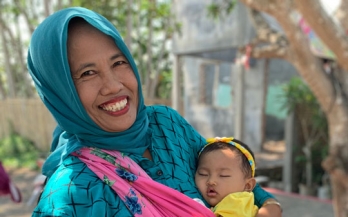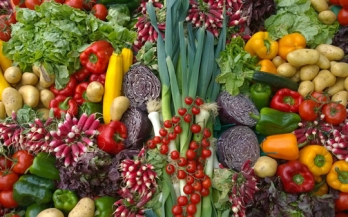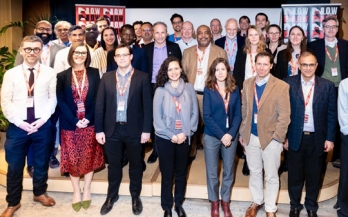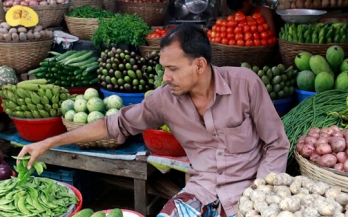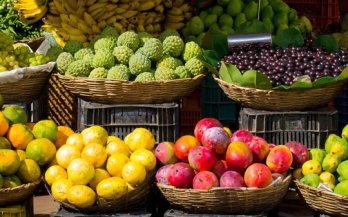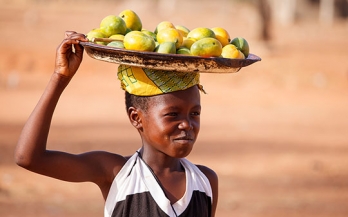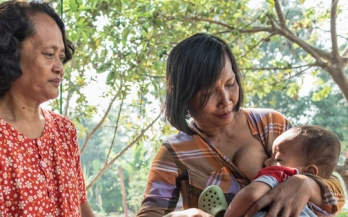At GAIN we strive for sustained impact. Our aim is to improve the consumption of nutritious and safe food for all, especially the most vulnerable. We work hard to make sure our programming, policy and knowledge work form a virtuous circle that generates that impact. Hence, we take knowledge seriously: as producers, but also as consumers. Here is our end-of-year list for the articles, books, blogs, videos and reports that have influenced our thinking this year.
A critical element to improve children’s health and reduce child malnutrition is changing behaviours and practices around maternal and infant nutrition. In Indonesia, mothers are generally aware that exclusive breastfeeding for six months is best for their child, and that they should continue to breastfeed for a further eighteen months with complementary foods.
I go to many meetings where the term "food system transformation" is bandied about. Sometimes the term goes unquestioned - for some people it has entered into the rarefied atmosphere of development jargon. But increasingly (thank goodness) the question is being asked: what does food system transformation mean? So what is the answer?
Most people, including low-income households in developing countries, buy their food from markets, both formal and informal. Therefore, it makes sense to treat them as consumers. At GAIN, our aim is to enable these consumers to improve their diets through increasing consumption of nutritious and safe foods, because a good diet is central to tackling all forms of malnutrition.
UNICEF released today its flagship report "State of the World’s Children 2019", which – for the first time in many years - focuses on children, food and nutrition. GAIN actively contributed to several sections of the report, particularly chapter 2, which looks at adolescent diets in different parts of the world.
In October, over 80 cities came together in Montpellier, France to review implementation of the Milan Urban Food Policy Pact (MUFPP). An increasing number of cities are signing the Pact (it has currently over 200 signatory cities), with 25 signing during the meeting.
On World Egg Day 2019, GAIN highlights the value and benefits of eggs for all. Providing a high-quality source of protein, eggs are among the most nutritious foods on earth. Their nutritional value is undeniable to people of all ages. For infant and children, eggs are among the best food sources as they contain nutrients which help brain development and physical growth.
I just completed a trio of meetings in Asia (TICAD), Africa (AGRF) and North America (UN General Assembly) all of which had a strong set of dialogues around food systems, asking how they need to be rebuilt to promote human health, rural livelihoods and planetary health.
The Global Alliance for Improved Nutrition (GAIN) launched today a new version of its main website and refreshed brand guidelines. The changes are designed to better communicate its work on transforming food systems to deliver better nutrition for all, especially the most vulnerable to malnutrition.
This week is World Breastfeeding Week, honouring one of the most effective and cost-effective nutrition interventions around: human breastmilk contains all the nutrients needed for young infants, conveying health benefits for both babies and mothers.


